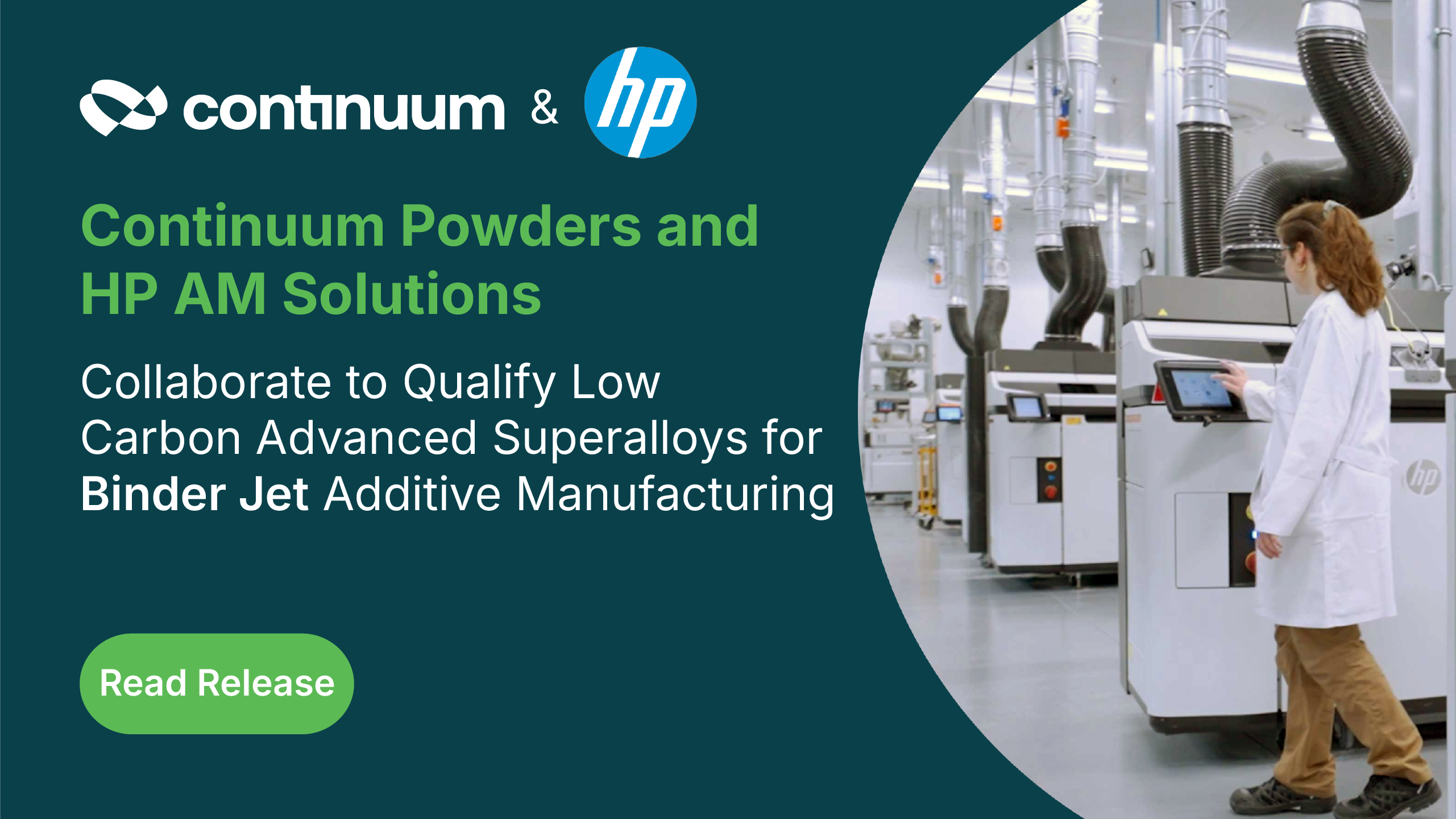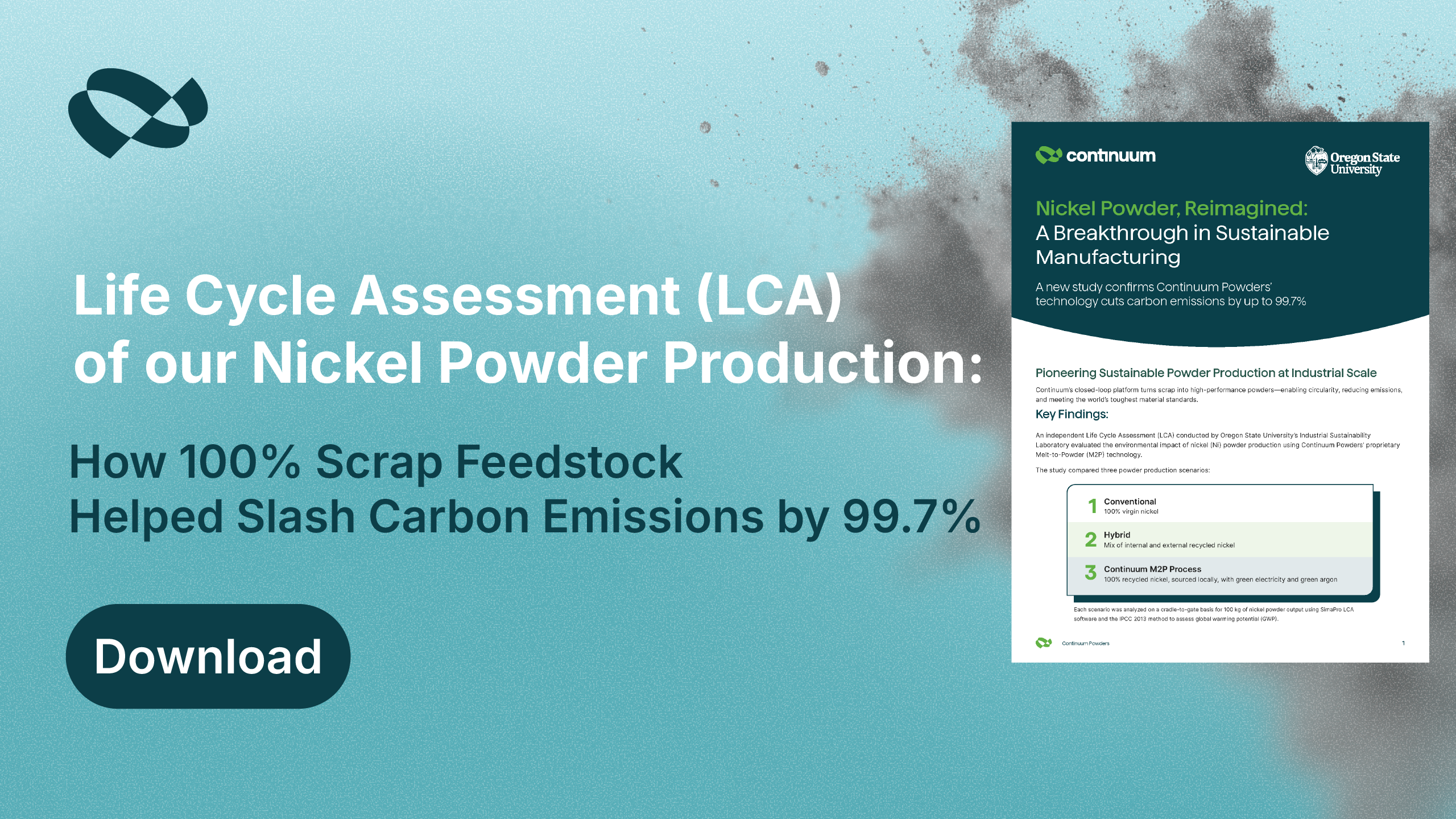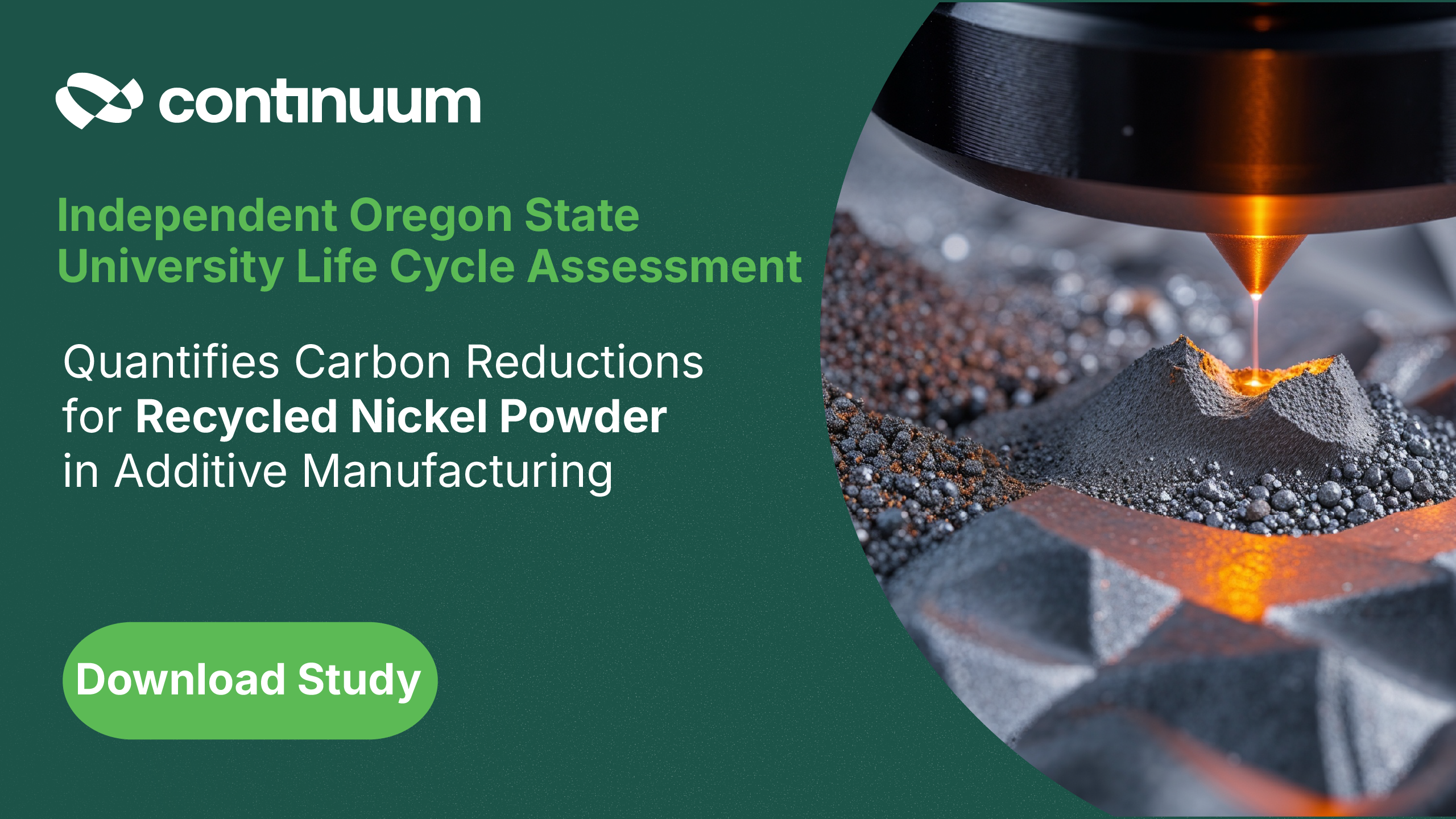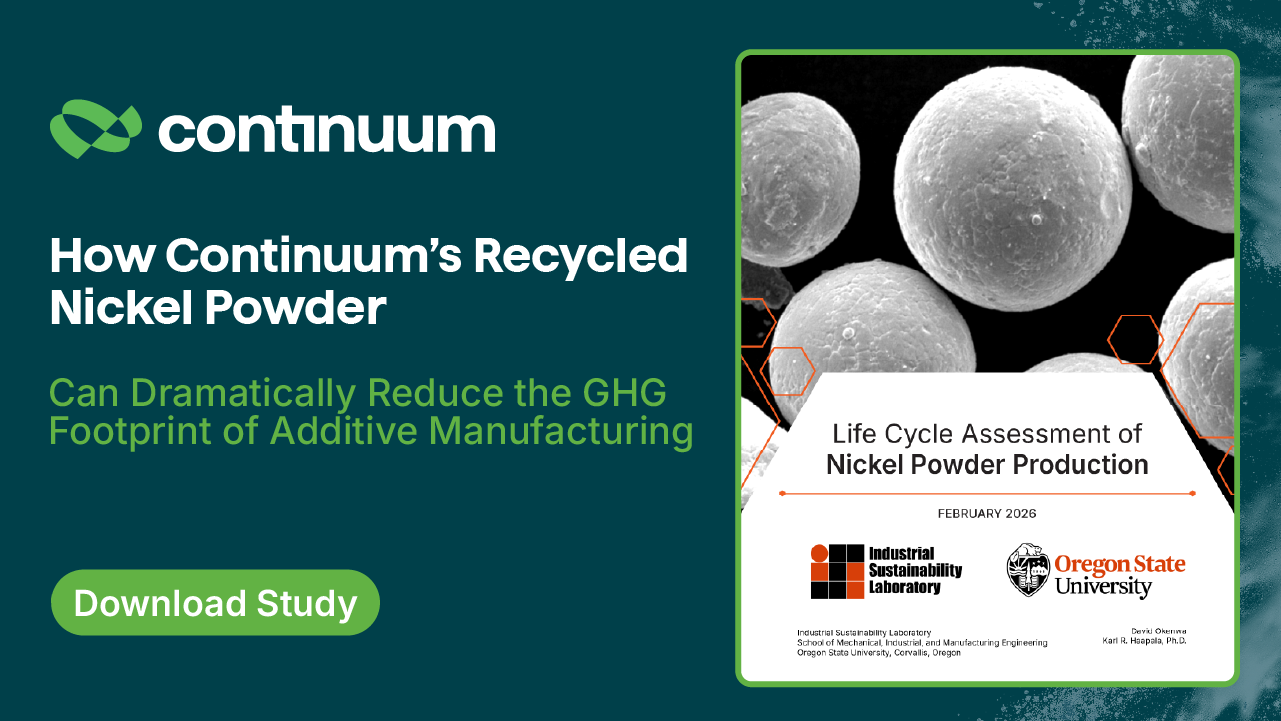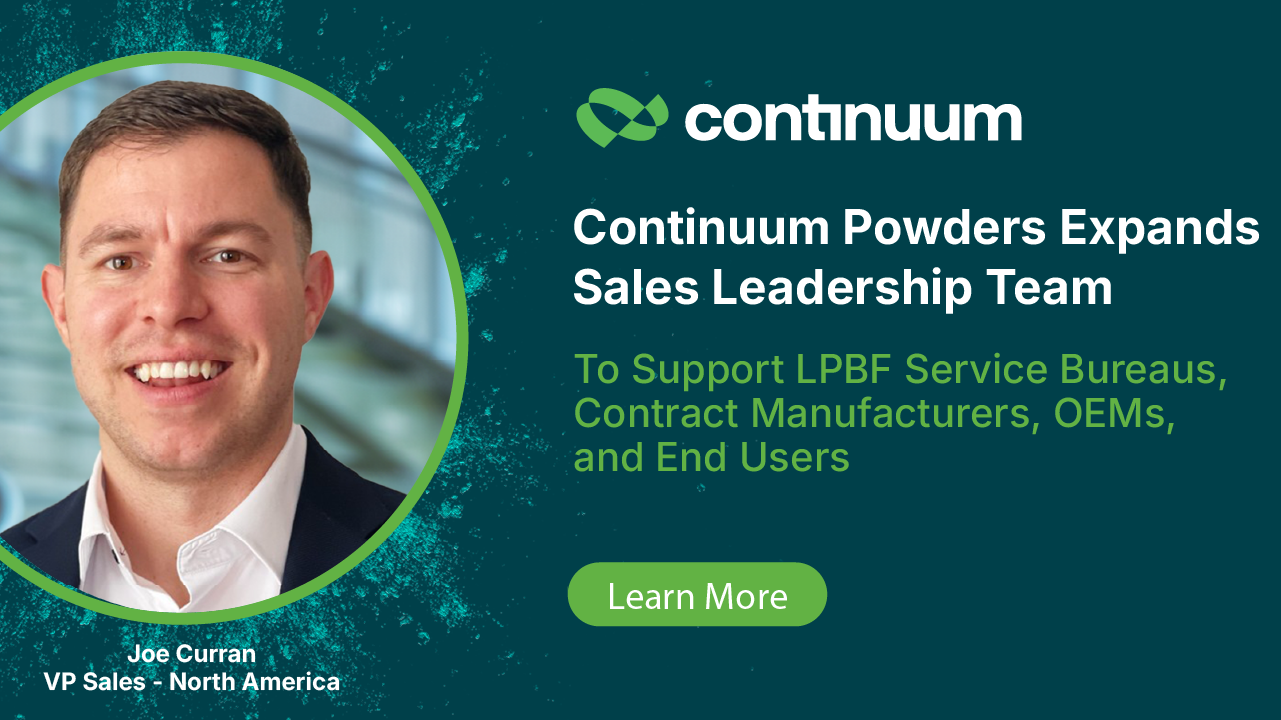Across the metals industry, manufacturers are confronting a shared challenge: how to balance performance demands with sustainability imperatives. Whether in aerospace, energy, or industrial production, the need for high-quality metal feedstock has never been greater—but so has the pressure to reduce emissions, conserve resources, and strengthen supply chains.
At Continuum Powders, we believe these goals aren’t mutually exclusive. By transforming certified scrap and surplus alloys into high-performance powder, we’re helping manufacturers “close the loop” on metal production—delivering the same performance as virgin materials while dramatically lowering environmental impact.
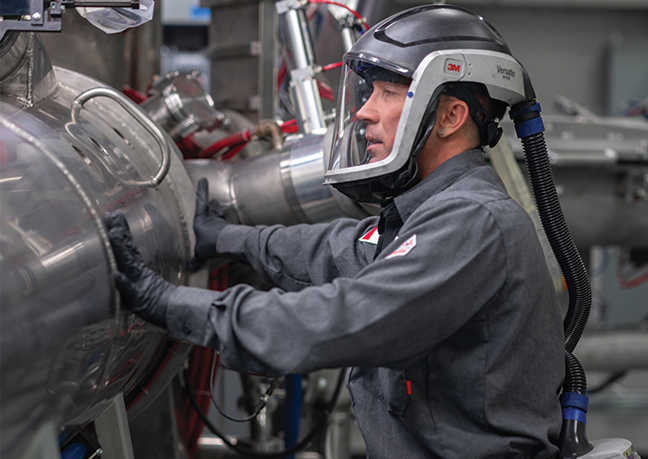
Continuum Operator with our Greyhound Melt-to-Powder (M2P) Platform
The Missing Link in the Circular Chain
For decades, the metals supply chain has followed a linear path: extract, process, manufacture, discard. Even as additive manufacturing (AM) gained traction, this fundamental pattern persisted—most powder producers still relied on virgin inputs, and unused or expired material often ended up as waste.
Continuum’s model changes that equation. By reclaiming certified scrap and using advanced atomization to transform it into fully traceable, production-grade powder, we close the gap between metal waste and new material. This isn’t recycling in the traditional sense—it’s refinement with precision. Every particle is engineered to meet exacting standards for chemistry, flowability, and size distribution.
Proof Through Partnerships
This circular approach is already reshaping how advanced manufacturers think about materials.
With HP’s Metal Jet team and Tecnalia, Continuum qualified reclaimed M247LC superalloy for binder jetting—a process that typically relies on costly virgin material. Working together, the teams achieved outstanding results in sintering density, hardness, and chemical uniformity, demonstrating that reclaimed feedstock can deliver first-rate performance.
In another example, Siemens Energy is partnering with Continuum to reclaim high-value nickel-based alloys from its own production stream and reintroduce them into powder form for next-generation turbine components. These projects prove that circularity isn’t theoretical—it’s already enabling more resilient, resource-efficient manufacturing.
The Sustainability Payoff
Circular manufacturing offers measurable environmental and operational benefits. A recent Life Cycle Assessment (LCA) conducted with Oregon State University found that Continuum’s reclaimed Ni718 powder reduces greenhouse gas emissions by 99.7% compared to conventional virgin production—117 kg CO₂ versus 3,179 kg CO₂ per 100 kg of powder produced.
Those savings compound when scaled across a full production ecosystem. Reduced extraction, minimized transport, and local powder production collectively shrink the footprint of every finished part. The outcome: a cleaner, leaner supply chain that performs better for both business and planet.
Study Overview
OSU-verified: Continuum’s M2P cuts nickel powder emissions by 99.7% using recycled scrap. Download the summary.
Beyond Sustainability: Strengthening Supply Chains
The environmental gains of circular manufacturing are clear—but the operational benefits are equally compelling.
By sourcing and processing scrap domestically, Continuum shortens lead times, reduces dependency on volatile global markets, and provides a stable, transparent supply of high-value materials. Each reclaimed batch passes through our OptiVantage quality assurance framework—covering chemistry validation, analytics, and traceability—to ensure customers receive powder they can trust for production-critical applications.
Formnext 2025: Circular Manufacturing in Action
At Formnext 2025, Continuum Powders will highlight how these principles come together in a real-world ecosystem—from scrap sourcing and atomization to requalification and reuse. The path to circular manufacturing is no longer a concept—it’s a working model, ready to scale across industries that depend on reliability, performance, and environmental accountability.
Circular manufacturing doesn’t just close the loop—it opens new opportunities.
Visit us at Stand 11.0, Booth E31, or book a meeting to explore how reclaimed metal feedstocks can strengthen your sustainability strategy and supply chain resilience.
